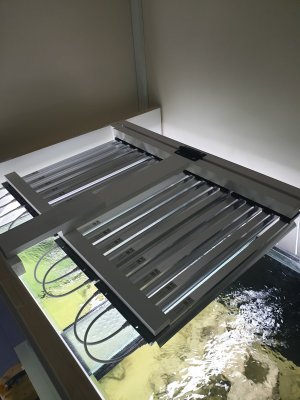- Joined
- Mar 28, 2009
- Messages
- 1,210
- Reaction score
- 1,027
I have used it all.
These days energy consumption is a big issue for me as I'm limited to 16 Amps in the garage - for soon about 40+ tanks! So LED is pretty much my only option.
Whether metal halides and T5s go away for good is not so much a question of what is used in the hobby but rather up to the general demand. And there it looks pretty dire for metal halides and T5s LEDs are taking over everywhere.
Sooner rather than later it will be hard to get anything that isn't LED.
I would agree with this. LED is such an appealing option for those with smaller tanks or without central air or growing more than acropora that for most of the hobby MH is a pretty hard sell.
Hamilton and Reefbrite will be the specialty supplier to a subset of big tank acropora hobbyists but won't ever give Ecotech a run for their money.






![20200909_072944[55118].jpg 20200909_072944[55118].jpg](https://www.reef2reef.com/data/attachments/1756/1756998-2e97788267513904a52339dda3a4f8c1.jpg)











